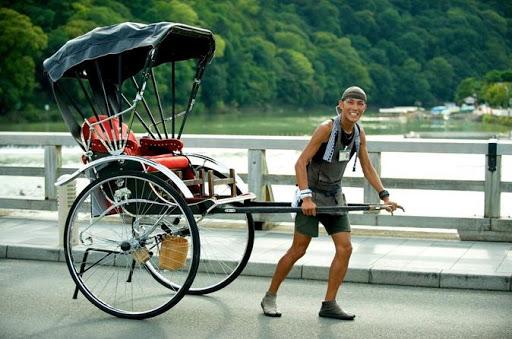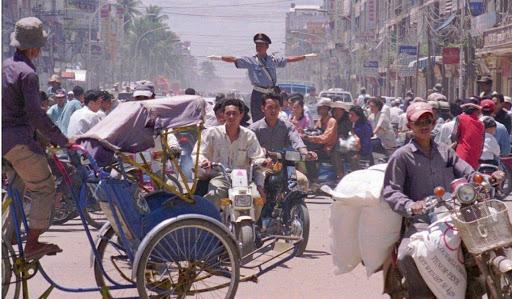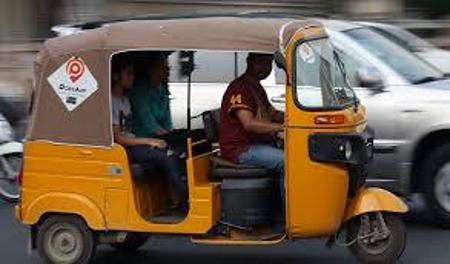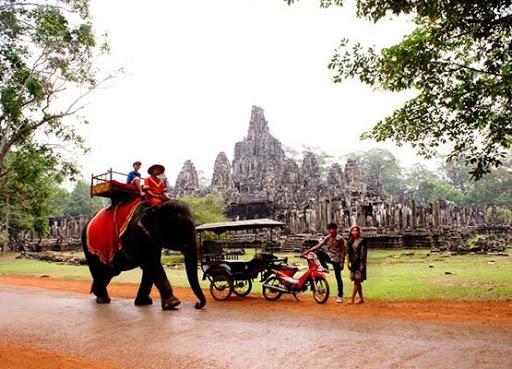
The future of Tuk-Tuks
No need to search for a tuk-tuk to get around in Cambodia; it's the tuk-tuk that comes to you! Often from the other end of the street, you’ll hear the famous and unforgettable “Hello Sir, tuk-tuk Sir?” constantly echoing in the air. In recent years, the rapid economic growth of the country has led to more than 10,000 tuk-tuk drivers in Phnom Penh alone! The tuk-tuk is the most commonly used means of transportation in Cambodia, more commonly referred to as "Reumok," which is similar to the French word "remorque" (cart). Today, a question arises: are tuk-tuks, as we know them, destined to disappear?
The history of the Tuk-Tuk: A traditional vehicle?
At the end of the 19th century, people traveled on foot, by canal, or in rickshaws pulled by human power—the forerunner of the tuk-tuk! The rickshaw was a significant Japanese export product and spread throughout Asia, especially within European colonies. It became the preferred mode of transport for colonists.

In the early 20th century, this mode of transportation was dethroned by the pedal-powered tricycle (cyclo-pousse). After World War II, it evolved with the addition of a two-stroke engine made in Japan. This marked the birth of the tuk-tuk as we know it today, alongside the moto-dops, which became widespread in the 2000s.

In Cambodia, the tuk-tuk consists of a scooter attached to a two-wheeled cart via a hitching system, allowing the trailer to be coupled with the vehicle.
The Tuk-Tuk revolution
For the past three years, the company Taxistartup, which operates worldwide, has revolutionized transportation in Cambodia by offering an app similar to Uber. For just $20 per month per driver or 5% + $0.20 per trip, it has been a game-changer. Companies such as Passapp and Exnet Taxi have seized this opportunity! They now offer users the option to travel in an Indian-style rickshaw, the pedal-powered tricycle replaced by a gas engine.

With this app, hailing a taxi has never been easier: simply enter your pickup location and get into the vehicle. The shift to gas-powered engines has drastically reduced consumer costs. No more negotiating the fare; it's set based on time and distance traveled.
As Indian-style rickshaws connected to transportation apps flood the Cambodian landscape, tuk-tuks are struggling to survive in the face of competition! Passengers are increasingly opting for the practicality and affordability of the new models, leaving the authenticity of the tuk-tuk behind.
The Tuk-Tuk: unshakable!
Even though the number of tuk-tuks has significantly decreased, they still complement the new modes of transportation! Aware of this trend, Passapp has decided to include the traditional Khmer tuk-tuk in their app to support drivers who don’t have autorickshaws, thus allowing passengers to choose between authenticity and new technologies.
However, this position alongside new transportation methods is becoming more and more threatened! In June 2018, the United Nations Development Programme (UNDP) and Grab, a taxi and rickshaw booking company, launched a joint project. The initiative, named SUMAI (Sustainable Urban Mobility for All Initiatives), aims to make Cambodian cities cleaner, safer, and more livable in response to the 4.5 million vehicles registered in the capital!
Just as the rickshaw gave way to the pedal-powered tricycle, which then evolved into the motorized tricycle, the rickshaw could very well be replaced in the coming decades by an electric, more robust rickshaw, similar to those seen in Paris, leading to the end of the tuk-tuk as we know it, in order to improve living conditions and traffic flow in the city.
However, this does not mean that tuk-tuks will disappear from the landscape; on the contrary, they will remain highly visible in tourist areas, where they will primarily be viewed not as a mode of transport but as a tourist attraction in itself! Mr. Pov, president of the tuk-tuk drivers’ union, has stated that he would like 50% of the parking spaces outside tourist hotspots to be reserved exclusively for tuk-tuks in order to preserve this heritage.

Moreover, former drivers are now offering guided city tours in tuk-tuks. Don’t hesitate to contact Mr. Soma, a humorous driver with exceptional knowledge of geography near Wat Koh. He speaks fluent English and would be happy to show you around the capital and its surroundings off the beaten tourist path!